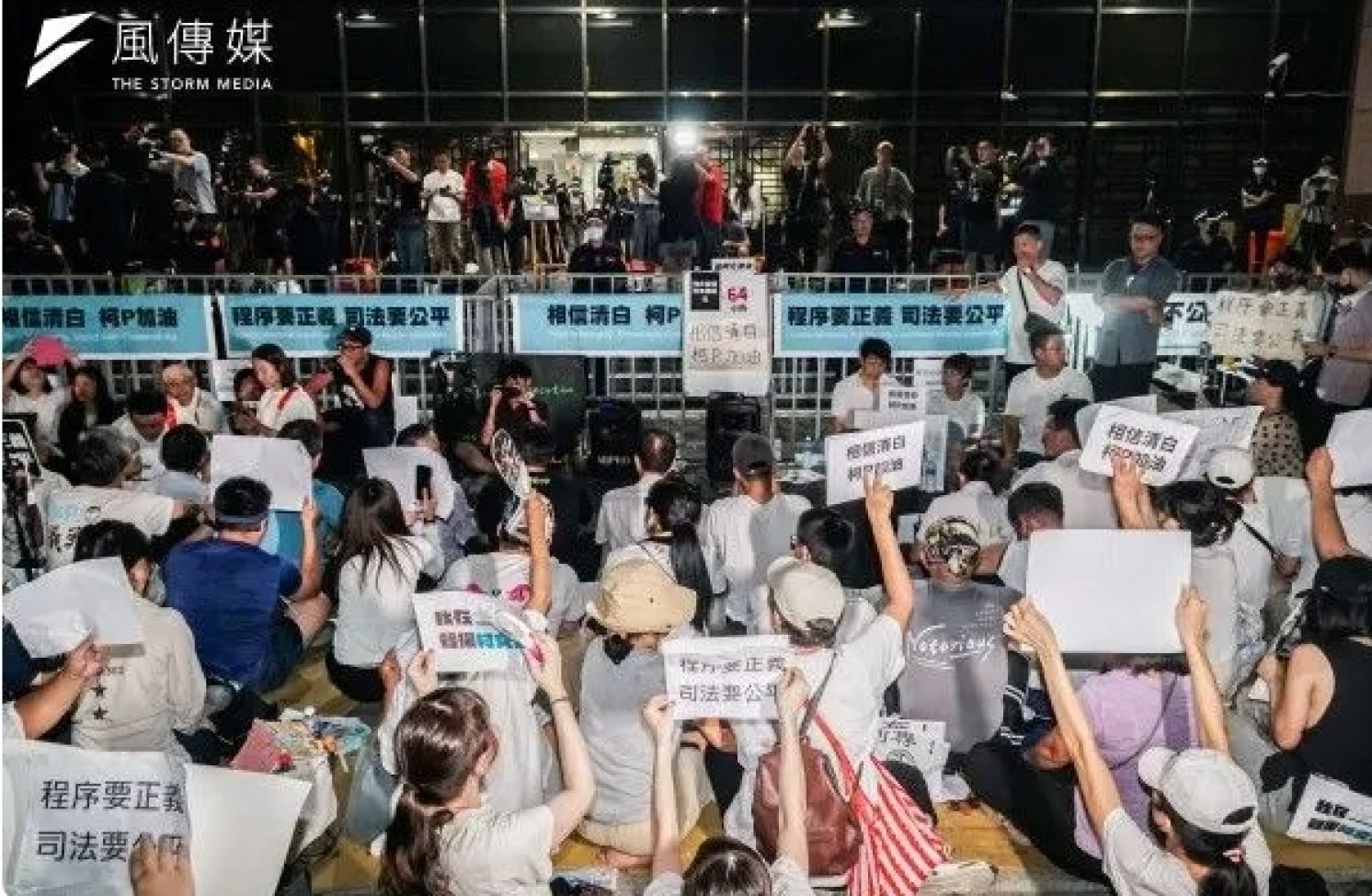
With TPP Fragmented, How Can KMT Attract Disillusioned Voters?
United Daily News, August 31, 2024
The Taiwan People's Party (TPP) is facing the biggest crisis since its founding ten years ago. On August 30, Chairman Ko Wen-je was subjected to a search and questioning by the prosecutors due to the Living Mall project case. This comes after the scandals related to irregularities in his previous campaign financial reporting, delivering another heavy blow to the party. Many supporters who had hoped for the TPP as an alternative to the Kuomintang (KMT) and Democratic Progressive Party (DPP) now find themselves disillusioned, with both parties reaching out to these disenchanted voters. Meanwhile, President and DPP Chairman Lai Ching-te has successfully reclaimed the support of young voters through recent anti-corruption actions from prominent figures within and outside his party, many of whom were originally inclined towards the green camp. In contrast, what is the KMT offering to attract these voters to vote for them? Those are not only challenges for the KMT and TPP separately but is also having a negative impact on the opposition’s role in fulfilling checks and balances.
In the past, domestic politics has been monopolized by the KMT and DPP. It wasn’t until Ko emerged with the slogan "topple the KMT-DPP high wall" and attracted votes from those disillusioned with the established political parties that the political landscape began to shift. Ko, who described himself as "dark green," was able to be elected as the mayor of the Taipei City thanks to the DPP’s support and assistance. Consequently, Ko included several DPP members in his city government at the early stage. However, when Ko sought re-election, his relationship with the DPP soured, and the two sides began to go their separate ways.
Ko’s "pro-DPP" background and past cooperation with the DPP have given him an intimate understanding of the DPP’s culture and behavior. As a result, whenever controversies arise involving the DPP, his critiques are often sharp and to the point, causing considerable frustration among green camp members. For example, during the pandemic, when the DPP was accused of unduly fast tracking Medigen COVID-19 vaccine, then-President Tsai Ing-wen, who had rarely appeared in public, went on Facebook live to discuss the vaccine and emphasize her innocence in the related stock speculations. Ko ridiculed this move, noting, "Everyone has their own measuring yardstick. Up until now, with over a hundred deaths from COVID-19, we haven't seen President Tsai call a press conference, but as soon as Medigen vaccine stocks fell, she held a press conference." This comment infuriated the DPP, leading the Presidential Office to release five statements in response.
More importantly, Ko’s supporters are predominantly young people, a demographic that has traditionally been a stronghold for the DPP. Statistics show that two-thirds of the TPP's supporters come from the DPP, while only one-third are inclined towards the KMT. Therefore, the DPP's strategy is obvious: to attack the TPP relentlessly to prevent Ko Wen-je from making a comeback in 2028.
Although Lai only secured 40 percent of the vote in the recent presidential election, he has strategically expanded his influence. On one hand, he has consciously strengthened nation consciousness through international sports events like the Olympics, advocating the "Taiwan-China, two countries" narrative. On the other hand, he has used recent anti-corruption actions to win over the younger generation who care deeply about fairness and justice. However, at this time, Ko Wen-je has been embroiled in scandals related to false campaign finance accounts and Living Mall project case, causing many of his supporters, who viewed him as their "political first love," to suffer from "heartbreak." The DPP has seized this opportunity to call back these supporters, with many returning to the DPP as seen from the rising young voter support for Lai.
In contrast, as many supporters return from the TPP to DPP, what has the KMT done? What narratives and actions has the KMT employed to attract these voters? Obviously, there has been no noticeable change. Since the election, the KMT has remained unchanged and continues to be the same old KMT.
During the presidential election, KMT Chairman Eric Chu called for a grand opposition alliance to unite non-DPP forces. Although the KMT and TPP failed to form a joint ticket in the presidential election, they did join hands in overseeing the government in the Legislative Yuan after the election, jointly pushing ahead several bills. Unfortunately, with the TPP's declining influence and the diminishing followers, the KMT, an aging party, is failing to present any compelling appeal to attract these voters. The decline of the TPP is a minor issue when compared to the rapid shrinkage of the non-DPP political landscape. With the DPP in control of four and a half of the five branches of government, there will be diminished oversight in the Legislative Yuan and less competition in the 2026 and 2028 elections, emboldening the DPP to act recklessly. This is not only a crisis for the KMT and TPP but also a crisis for democracy in Taiwan.
Apropos Ko’s situation, the opposition should be cautious rather than rejoicing, as the fall into the abyss will affect not just Ko and his party, but also Taiwan’s broader political landscape.